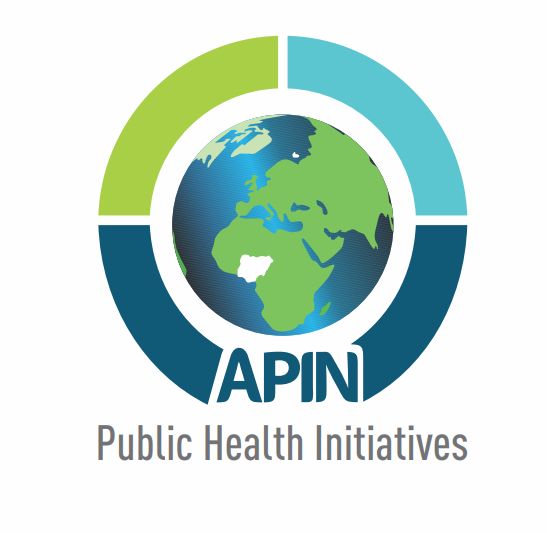Dr Ifeyinwa Onwuatuelo is the Director, Technical Services at APIN Public Health Initiatives. In this interview to mark this year’s World AIDS Day, she spoke about the need for greater political will towards ending HIV/AIDs in Nigeria, how APIN Public Health Initiative is helping to improve response in the country, as well as the benefits of ‘community-led’ HIV response among others.
Can you briefly tell us about your interventions for HIV testing, prevention, and treatment?
APIN Public Health Initiative provides a range of client-centred interventions for HIV testing, prevention, and treatment across supported facilities and communities in Benue, Ogun, Oyo, Ondo, and Plateau states.
This includes creating awareness, promoting HIV testing, and linking HIV to treatment and care while reducing the stigma and discrimination associated with HIV.
We provide HIV testing in communities through peer-led approaches, house-to-house and targeted community outreach services. APIN provides prevention services that promote safer sexual practices and reduce risky behaviours using social and behaviour change interventions, provides pre-exposure prophylaxis (PrEP) as prevention and post-exposure prophylaxis for accidental exposure to HIV and Gender Based Violence (GBV), and links all HIV-positive clients to antiretroviral therapy (ART), which is crucial for people living with HIV general health and wellbeing.
APIN has also continued to provide sustained support to households affected by AIDS through our OVC programme, supporting treatment, household economic strengthening, financial literacy, and support for adolescents and young people to improve their quality of lives.
Another intervention that we have been heavily involved in is the Undetectable = Untransmittable (U=U) campaign which we have been implementing in partnership with the National Agency for the Control of AIDS (NACA) and the U.S Centers for Disease Control and Prevention. The idea behind U=U is that when People Living with HIV (PLHIV) adhere to their HIV medications consistently, they can reduce the amount of the virus to a level so low that it cannot be detected by standard HIV tests.
At this point, the person is said to have an undetectable viral load, and can also not transmit HIV to their sexual partners. We have been working with the media, community-based organizations and our supported health facilities to educate the public, especially adolescents and young people about this.
We believe that with the understanding of U=U, more people will be inspired to get tested, adhere to treatment and achieve that undetectable status, so that no new infections of HIV will be recorded.
The theme of this year’s World AIDS Day is ‘Let Communities Lead’. How have communities led the HIV response in Nigeria, and what was the impact?
The theme ‘Let Communities Lead’ resonates deeply with Nigeria’s HIV response, reflecting the recognition of the pivotal role communities have played in shaping and driving the responses to combat the HIV epidemic in Nigeria.
Putting communities at the centre of interventions has played a significant role in increasing awareness, testing, and linkage to care and support services, especially in hard-to-reach communities, by leveraging the structures and networks within these communities.
Local communities, through grassroots-led advocates, have also played a vital role in education and have helped reduce stigma and discrimination associated with HIV/AIDS.
The increased involvement of affected underserved populations, adolescents, and young people in decision-making, programme implementation, advocating for policy change, and addressing socioeconomic challenges has greatly improved the HIV response and increased coverage of services. This was demonstrated during the COVID-19 lockdown, where the HIV programme was able to sustain service provision through community structures, despite the restrictions.

How does APIN work with the government , communities and People Living with HIV to improve access to care?
APIN has continued to work closely with the National Agency for the Control of AIDs (NACA) and her state counterparts, which are responsible for coordinating the multi-sectoral HIV response.
Through these collaborations, APIN effectively engages the Network of People Living with HIV/AIDs (NEPHWAN) as well as Civil Society Organizations (CSOs) to reach target groups and hard-to-reach communities towards optimizing HIV case finding efforts, continuity on treatment and improving treatment outcome and quality of life.
These engagements have increased transparency and accountability as well as local ownership of the HV program across our supported states.
Our inclusion of People Living with HIV into staffing systems also strengthens social cohesion between NEPHWAN and healthcare workers while significantly minimizing stigmatization-related issues that would otherwise impede access to HIV-related care.
APIN also collaborates with the Local Government Agency for the Control of AIDs (LACA) managers, traditional and religious leaders to secure community entry and map hotspots towards strengthening community interventions.
As an organization that understands the health sector dynamics in Nigeria, APIN is intentional about ensuring good coverage of HIV-related services in her supported states.
Hence, we collaborate with the state government alternative medicine boards to improve access to HIV services for individuals, particularly pregnant women and babies, accessing healthcare services at Traditional Birth Attendants and Mission Birth Attendants. In addition, APIN collaborates with the State Ministries of Health, Hospital Management Boards and Primary Healthcare Boards to strengthen quality integrated HIV service delivery at the healthcare facilities and community levels.
What do you think the government and other relevant stakeholders should do specifically to end HIV/AIDS in the country?
As with other diseases of public health importance, there is a need for government to demonstrate greater political will towards ending AIDs in Nigeria. The government needs to strengthen its transition from policy to implementation of HIV-related plans, such as the National HIV and AIDs Strategic Framework 2021-2025 and 2020 National Blueprint for Integration of HIV into State Health Insurance Schemes.
There is also need to strengthen the coordination, and streamline the multi-sectoral HIV response. In the light of the current over-dependence on donor funding for HIV, the government needs to significantly increase her financial commitment through the adoption of innovative domestic financing options for HIV.
More specifically, the government should strengthen HIV case finding efforts through the purchase and distribution of HIV Rapid Test Kits and improve on the country’s healthcare infrastructure. To address the dearth of health workforce for the HIV response, the government needs to work with academic institutions and professional bodies to integrate HIV infection studies into medical training curriculum and provide a more enabling environment for medical practitioners. Similarly, the government needs to lead the discourse on integration of HIV services into the broader health system towards maximization of limited resources.
There is a need for the government to minimize the negative externalities of high-risk behaviors while scaling up HIV prevention efforts among people at most risk of contracting and spreading HIV.
According to the World Health Organisation (WHO), the increased use of condoms, sustainable programs to promote sexual behavioral changes; affordable preventive methods for preventing infection in high-risk populations as well as prevention of mother-to-child transmissions will contribute significantly to ending the epidemic.
The Nigerian government needs to invest in public goods relevant to HIV epidemic control, such as HIV-related research into understanding localized patterns of the disease, behavioral practices and cost-effectiveness of interventions. Generally, improved multi-sectoral collaborations across different levels of government and more efficient use of available resources will allow for a more sustainable response.

 Join Daily Trust WhatsApp Community For Quick Access To News and Happenings Around You.
Join Daily Trust WhatsApp Community For Quick Access To News and Happenings Around You.

